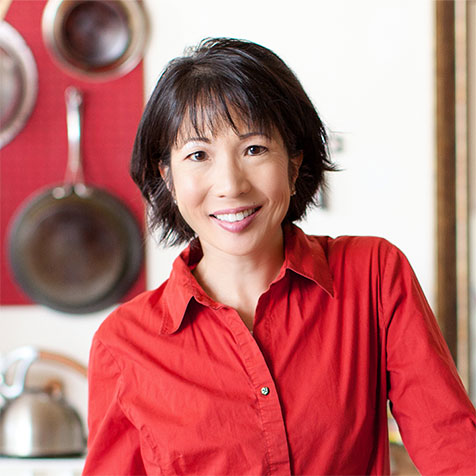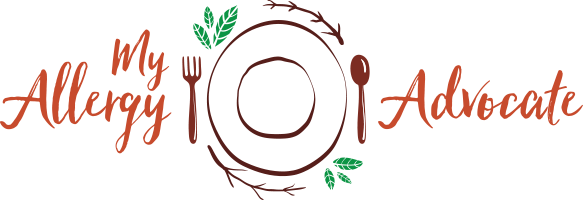This is my personal story of illness and recovery, and should not be used for the purposes of self-diagnosis nor replace seeking medical attention and treatment. See my update at the end of this post.
I’m Fine… Until I’m Not
While pretty much the entire year has been a whopper for the world, it’s still fair to say that those with food allergies, asthma, autoimmune disease, and chronic illnesses face challenges that can leave us saying, “I know COVID-19 is bad, and I’ve been dealing with all this other stuff for years.”
Can you relate?
As a nurse and a mental health counselor, I’m not diminishing the dangers of being exposed to COVID-19. Yet I am acknowledging that if you have one or more of these other conditions to deal with, it’s likely you have an understanding around minimizing risk, isolating from others, dealing with loneliness when no one invites you over for group dinners or BBQs, and generally how it feels when people treat you like you have the plague.
It sucks.
Recently, I’ve been recovering from the effects of Reactivated EVB virus and anemia. In other words, I’ve been in a state of fatigue for a little over a month, which required me to take some time off work, step out of the Nursing shifts I was putting in with the Medical Reserve Corps for COVID-19 response in my city, and figure out what the heck went wrong. Behind that thought whispered concerns that I had somehow done this to myself. However, it’s a lot more complicated.
I’m Fine… Until I’m Not
A friend recently posted this, which resonated with me:
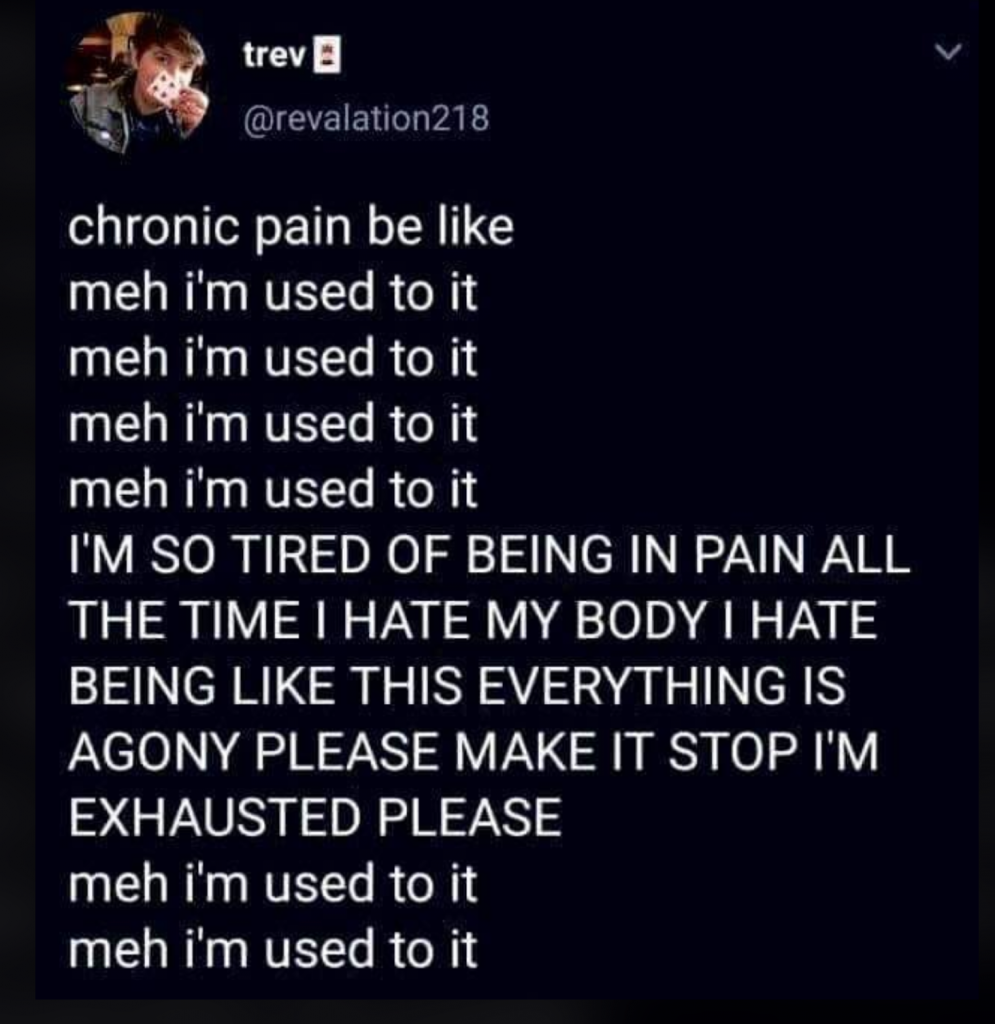
One of the features of my life that I’ve had to learn many lessons about is this notion of threshold pain and symptoms. I cannot tell you how many times I have had friends, family, and colleagues tell me that all the while during a period of time I’m experiencing uncomfortable symptoms of my chronic illnesses, flares, and pain, they just thought everything seemed fine.
And, in fact, I end up feeling fine. Or fine enough to keep going.
And thus, I am fine. Until I’m not.
The most recent narrative reads something like this. I had been working part-time hours from home for three years, taking vacation when it was convenient for M and I to travel together, tucking in my workout schedule where it worked best with me, and enjoying three and four-day weekends pretty much whenever I wanted them.
But when the pandemic hit our area (and it was the first to be hit in the U.S., coincidentally), I went into heathcare worker disaster preparedness mode, not only for myself, but for the city. I applied to volunteer, began reading what I needed to find out where to best apply my skills, and made sure all my license renewal information was up to date. I made the decision to move out of our home and get my artloft ready for quarantine living in order to protect my M and keep away from people. I prepared to be lonely, yet too busy to feel much of it.
I compartmentalized my feelings: Do this now, grieve later.
At the same time, the client calls began trickling in. And it was just a trickle, really. Then it was a drip, a continuous flow, and then a flood coming in through Social Media channels, texts, questions from family and friends, and requests for volunteers to report for duties from answering phone calls to training to be on the lines for COVID-19 testing or going into the Isolation and Quarantine centers. All communication channels were open, and I let the flood in. I never turned them off, never turned anyone away, and paced myself for one to two extra Nursing shifts a week.
None of this ever felt too much for me to handle, although I attempted what I have named, “The Sleep of the Living Dead” after every work cycle. Everything was fine.
After a couple of months of seeing counseling clients back to back three days a week, followed by on-call shifts and scheduled Nursing shifts bookending the week, I noticed something felt a little, well, for lack of a better descriptor, off.
It seemed like everyone around me was complaining about feeling tired. I was no exception. I got up every morning, ate, worked out on my bike or took a run, worked, ate again, answered questions into the evening, slept, and repeated that pattern over and over. On weekends, I would find a place to run by myself (made more difficult during our city’s lockdown), and try to give myself a little extra food and sleep.
Lather, rinse, repeat. Everything was fine, really. And then, it happened. My heart rate, normally low and in some cases, nearly labeled bradycardia for how low it could go at rest, would suddenly and without warning, accelerate and blow the preset warning threshold on my Garmin fitness watch, setting off an alarm.
I blew it off as a tech abnormality. Meh, I feel fine. But just in case, I’ll take a listen to my heart and take my blood pressure. See? Normal. Beautiful heart rhythm, no abnormalities. OK, that heart rate is a little elevated, but hey — I just got up and walked across the room. Of course it’s going to be 10bpm higher than usual.
By June, I had created a predictable schedule, one that included an additional on-call night shift, and two days where I would drive for an hour to a testing site, talk to people in cars all day, and guide them through their testing. I was on my feet an additional 16-18 hours a week, standing on asphalt, and subjected to cold, rain, or sun while wearing PPE (personal protective equipment) that included gloves, gown, hair covering, face covering (N95 or surgical mask), and using copious amounts of hand sanitizer, which I discovered I was allergic to either the aloe in some of the brands, or the fragrance, or both.
In comparison to being an Emergency Room RN, the work I did was a piece of cake. Sometimes I would be wheeling a vital sign machine from room to room of an Isolation and Quarantine center, checking on patients, answering questions, and noting requests for food and beverages. Other times, I would be in a trailer taking walk-up patients needing an N-P (nasopharyngeal) test, which requires the tester to repeat a lengthy script on the test, prep the person, and cleaning the test area and tester (change of gloves, hand sanitizer, etc). Other times, I was outdoors doing the same. At the end of shift, I would come home, often with a sore throat from speaking all day, dehydrated and too hungry to do much about feeling hungry. Some of the sites provided food for our breaks, but because I have Celiac Disease, almost all of the lovely donated food was off-limits to me: pizza and sandwiches. With thousands of hours of volunteering happening, it was too much for local sponsoring food suppliers to supply fresh food options in an allergen free format.
At first, I thought the shortness of breath I was feeling was from wearing N95 masks for long hours. While your oxygen saturation won’t be as high as normal when wearing these respirators, it won’t be critically low. It’s not like you’re doing jumping jacks while wearing them. This is a normal feature of healthcare work, and while I hadn’t been in that environment for several years, it is not unfamiliar to me, nor generally is it uncomfortable.
See, I was fine. Everything is fine. I’m just a little short of breath, it’s the N95 masks and the fragrance from the hand sanitizer. I’ll remember to take a hit of my inhaler, just in case it’s springtime allergies too.
July rolls in, and I’m usually excited for the beginning of the season’s best outdoor weather for camping, hiking, and running. Our state had reopened almost all of its parks by then. While running on one of my favorite trails, I tell my trail buddy that I can’t seem to catch my breath. We press on until I turn around and ask him, “What color is my face?” He tells me I’ve turned grey. I recognize I’m not feeling well, and we turn around and head back to the parking lot. I am veering from side to side on the trail like I’m drunk, but I’m not.
Later that day, I feel tired, but fine. I chalk it up to having eaten something that upset my stomach combined with a mild allergic reaction. It happens. I make plans for an epic end-of-the-month, 22-mile run of the Enchantments, a local trail that traverses switchbacks to an azure-colored lake, a climb up the quad-killer Asgard Pass, through mountain-goat dominated meadows, wildflowers, and snow embankments surrounded by the mountains, and a wicked nine-mile descent to another lake. It just so happens that we pick the hottest day of the year to run it: it will reach 105F in the valley, and a cool 75F at the top.
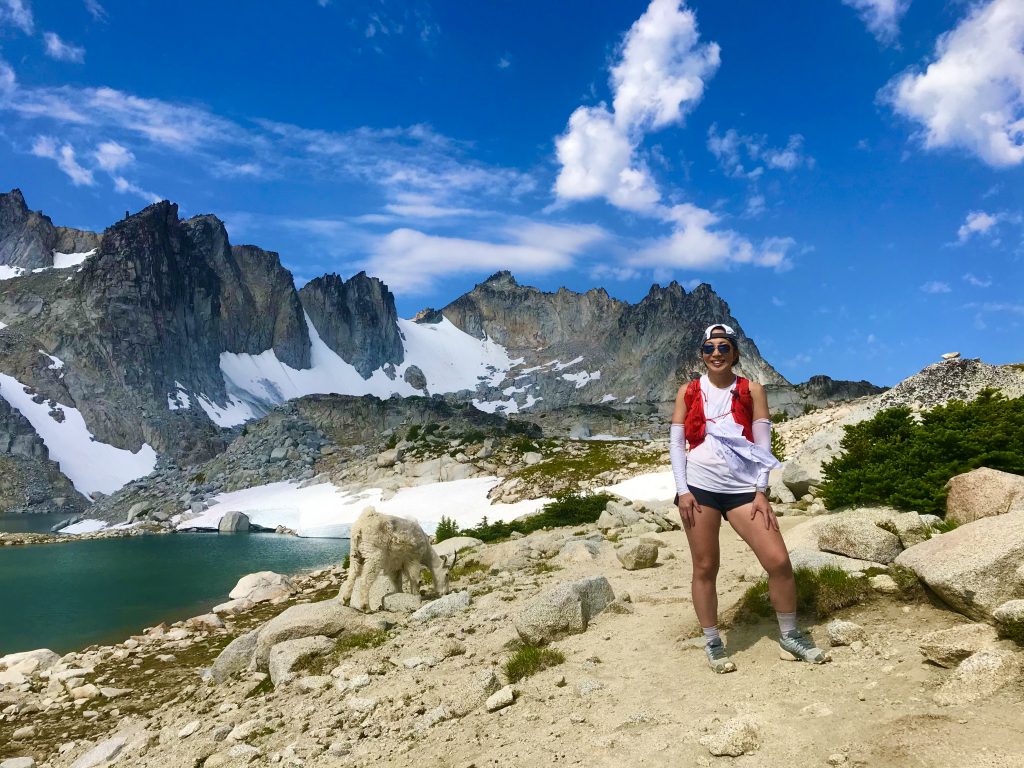
Sometime along the climb of Asgard Pass, this little voice is meeping in the back of my brain: Everything is fine. Unless, it isn’t.
It would take nearly two weeks after that day of huffing, puffing, sitting down and resting, and having a short talk with myself while my trail buddy was exploring an ice shelf, for me to say it out loud.
Something feels wrong. I’m not just having a bad recovery. Something is wrong. It’s not fine.
Here Is Where I Go Off On a Rant
“What did I do wrong this time?“
That was the question I asked of myself after that long day. Looking back, it’s so clear to me that I was asking the wrong question at that time. I should have been asking what is wrong, versus asking what I did wrong. There is another time for post-illness analysis.
What was wrong was that my body wasn’t acting normally. I had an elevated heart rate more times than not, and at rest. I wasn’t sleeping well, and hadn’t sleep well for long enough stretches of time. I wasn’t eating well, getting home from long shifts or ending a work day so exhausted, it was all I could do to stuff a few calories into my mouth, remember to take my supplements (iron, selenium, magnesium, multi vitamin, nutritional yeast, Vit. C, D, E), and not overdo it on the carbs (something my body doesn’t like over time, even if they are gluten free). I had lost a little weight, but hardly noticed it.
My workout performances, once topping out at the highest wattage I had ever generated in the same timeframe, had begun to suffer. I was having trouble waking up on time to jump on my bike; in fact, I was late to my online group classes more than once, which is unusual for me. My Coach used to joke that I talked all the time; now he noticed that I was quiet.
Every week since the advent of the pandemic, I had learned of a new COVID-19 death just a single person or community removed from the one I was serving. Every call to serve felt like I had to be “on” to help others stay safe and healthy, and the wrong advice or information given could mean that someone might suffer. But the guidelines were changing, sometimes every few days. And then I’d go back and recontact people, giving the new guidelines. I felt response-able.
Everything was fine. But I was exhausted.
In order to run in the Enchantments with my trail buddy, we arranged to both be tested for COVID-19 after I had stopped my volunteer hours. Both of us had no contact with others. After testing negative, I moved back home with M, who had been WFH since February and had no contact with others. I began to look forward to some time off, maybe just a few weeks. At least, that was my intention.
But the irony of returning home was that I had several of the symptoms of COVID-19 — fatigue, malaise, and shortness of breath. Yet it clearly wasn’t COVID-19. As I mentioned in the first section of this post, I discovered I had a reactivated virus and anemia. Two sets of blood tests finally revealed that I had a high viral load for EBV, a low MCHC value, and evidence of pernicious anemia. The shortness of breath was a symptom of my blood not delivering enough oxygen, as well as a symptom of the virus; the fatigue was my body’s response in its war against a virus and the pernicious anemia, leaving me unable to use sleep and rest to recover normally.
On top of that, I have a problem with B12 deficiency even when I have enough in my diet. Pernicious anemia isn’t caused by lack of iron, folate or Vitamin B12, as much as something missing to be able to utilize available B12 needed for your blood to produce healthy blood cells.
Once I had the data from the blood tests and a chat with my doctor, I actually felt relieved. People with autoimmune diseases are at higher risk for EBV; pernicious anemia in my case was caused by a genetic issue that was handed to me. After years of having people suggest I just wasn’t eating enough, I actually had evidence to suggest I had been doing everything I knew to be well. And I could still feel sick.
Healthcare Professional, Heal Thyself… And Take a Break
In late August, after returning to WFH only (no Nursing shifts), I received these confirmed diagnoses, and took ten days of vacation alone to get away from the city, breathe fresh air and take gentle walks, and essentially, regroup. I kept my stress low, ate my own food and stayed out of restaurants, and camped by a beach to take in ocean views nearly every day of my time off.
For a time, I felt guilty about leaving my colleagues who were doing hard but necessary work in the COVID-19 response, while some parts of the U.S. continued to believe that the pandemic is a hoax. Yet with quiet meditation and long, slow walks, I came to understand that my body needed this time to begin resting and healing. And I needed to stop throwing myself under the bus for needing time to heal and rest.
While on vacation, a couple who were camping neighbors who shared their space with me (still socially distanced for safety) asked, “So, how does it work to be both working as a Counselor and working as a Nurse?” I laughed and said, “Well, apparently, not very well!”
I would like there to be no shame in needing to take time off to rest, recreate, and reflect. But healthcare workers are not robots. We’re human. I slept like a bear in hybernation, ate like a pig (except clean food), and took in the change of natural scenery, crying tears of joy at first light, and enjoying the moonlight through the trees at the end of the day. The guilt that I felt initially faded into an acceptance that my tired body needed to unplug and undergo a lengthy software update and hardware maintenance cycle.
It is now September 2020. The air is filled with smoke from wildfires burning on the West Coast, and Washington State has issued advisories for everyone to stay indoors and avoid exercising outside.
As much as I love being outdoors and moving my body across the hours, I’m OK with another forced break. Rest is my superpower. So is kale and seaweed, lean meats, fruit, and supplements.
I’ve had over a month to recognize that I could do everything I know to do, and I can still get sick. I can still encounter elements of my Medical Unicorn self lurking in the MTHFR gene awaiting its unique expression. I am still a Healthcare Provider, even if I’m not on the front lines. I am taking care of a single patient today: me
As I shake out another set of methylated cobalamin and blood builder pills in my morning “cocktail”, I can smile again. After sleeping, I’m beginning to actually feel rested instead of feeling exhausted. The shortness of breath has abated, the heart palpatations and higher heart rates are fading into the background.
I feel more like myself again. While I’m not quite out of the woods yet in the healing process, I’m doing much better. When it’s the right time, I’m looking forward to returning to Nursing shifts. In the meantime, I’ve accepted a short-term virtual support role to help essential workers process trauma, exhaustion, racism, and stress. I can be response-able without burning my immune system out.
As of 09/25/2020, my laboratory results indicate that I no longer show evidence of active virus. I’ll still be keeping tabs on this from time to time, yet this is good news. I did not need to go on acyclovir (most readily prescribed antiviral medication).


